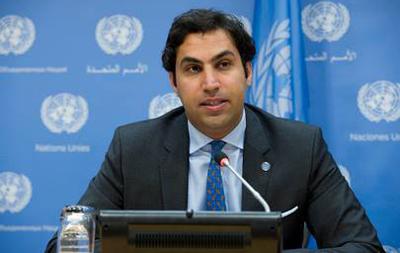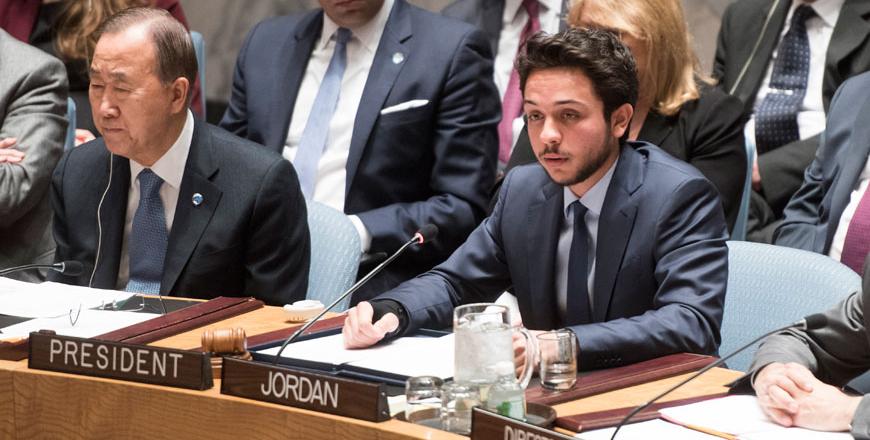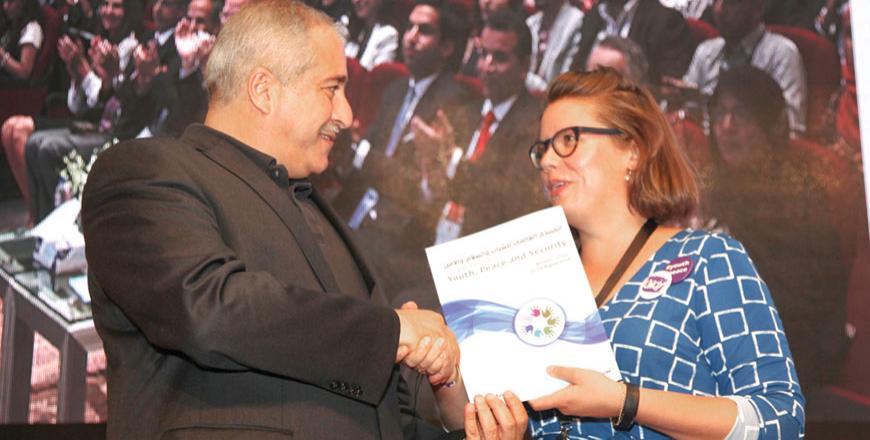You are here
UN envoy urges policies, programmes at int’l level to build on Amman Youth Declaration
By Rand Dalgamouni - Sep 19,2015 - Last updated at Sep 19,2015

Ahmad Alhendawi
UNITED NATIONS — Every time youth issues come to the UN Security Council, they come as a problem — foreign fighters, victims or perpetrators — according to a senior UN official, who called for establishing a mechanism to deal with young people as peace builders.
“There is a very important mechanism at the Security Council called ‘women, peace and security’, so we think it’s time for the Security Council to have ‘youth, peace and security’,” said Ahmad Alhendawi, the United Nations secretary general’s envoy on youth.
At a meeting with journalists last week at UN headquarters in New York, Alhendawi spoke about the Amman Youth Declaration on Youth, Peace and Security, which was the outcome of a UN conference hosted by Jordan last month.
The declaration’s follow-up action has to be at the policy level led by member states, and at the programme level for UN agencies, he said, noting that the campaigning must continue to keep the momentum going.
“We’re already working now and developing our joint matrix at the UN for the follow-up on the Amman Youth Declaration,” the Jordanian UN official added.
Some 11,000 young people around the world contributed to online consultations on the declaration.
Jordan is also committed to using the declaration to draft a Security Council resolution on youth, peace and security.
“With all the burning fires around the world, you need to get young people for their voices to be heard,” Alhendawi added, noting that youths are the first to be sent to the frontline in times of war.
“They are probably the ones who are going to be killed… but when you have peace talks, you don’t see young people sitting there,” he said.
“So young people are good to be sent to fight and die, but they are not good to be brought to the discussion, and that’s just crazy. We have to change that.”
Around 600 million young people live in conflict zones or fragile security situations around the world, according to UN estimates.
Pointing out the need to engage youths in politics more effectively, Alhendawi said young people are even under-represented in youth organisations.
“If you go to an organisation working in women’s rights, most likely who will be there? Women. If you go to an organisation of indigenous people, who will be there? Indigenous people… but only when you go to an organisation for young people, it is likely that you will see no young person on the board or in the room,” he added.
“I think even youth issues have been hijacked in some way.”
Describing violent extremism and its effect on young people as a social disease, Alhendawi said more work is needed to understand the phenomenon in order to counter it.
“The world has been investing [funds] to understand cancer and HIV/AIDS for decades now and we have not been able to find a cure. This is much more difficult… and I don’t think there’s one way of explaining it,” he noted.
Poverty alone is not a factor, the UN official said, but he acknowledged the adverse impact of frustration among young people over issues such as unemployment and lack of services.
“It seems to me that the international community has become more aware of the need to support young people and to work for positive youth development because we’ve recognised that we’re hitting the wall with this generation,” Alhendawi said.
“I’m really hoping that this wake-up call … would scale up the investments in supporting young people, but without us losing the focus that the massive majority of young people are not terrorists. They are not potential terrorists; they are ones who need a better life, and we have to offer that to them.”
Related Articles
AMMAN — The United Nations Security Council (UNSC) adopted on Wednesday an “historic” resolution on youth, peace and security, which, for th
MADABA — Youth ambassadors and peace builders from all over the world convening in Jordan adopted the Amman Youth Declaration on Youth, Peac
AMMAN — The Global Forum on Youth, Peace and Security, to be hosted by Jordan on Friday and Saturday, is "the most important international p


















